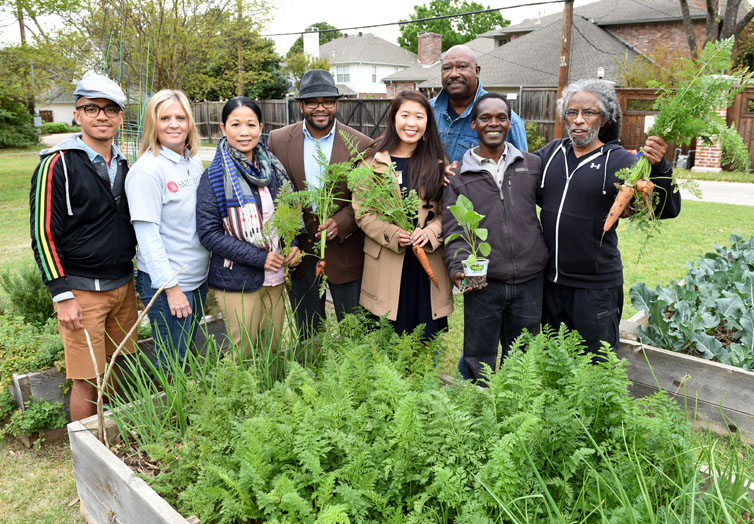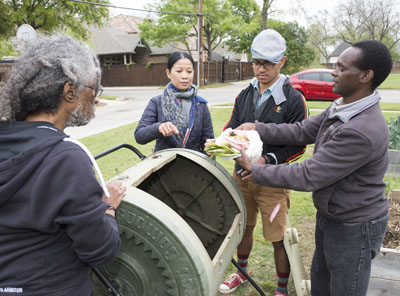SMU Dining Services enjoys green partnership with campus organic Community Garden
SMU Dining Services enjoys a green partnership with the campus organic Community Garden.

By Milan Khatami
SMU News

Starting this year Dining Services began delivering upon request the composted material to the garden, located at the intersection of Daniel and Dublin, The composting is done on-site at the dining facilities and delivered when Community Garden workers specify the frequency and amount needed.
Comprehensive surveys were distributed to students during the fall semester and many of the comments showed that they wanted to see the food waste from the dining halls, ranging from egg shells to fruit rinds, put to good use As a result, Dining Services began brainstorming ideas to give back to the community while simultaneously improving their sustainability footprint – resulting in the collaboration with SMU’s Community Garden.

The Community Garden is a project of the Center for Evangelism and Missional Church Studies in the Perkins School of Theology. The garden provides SMU students from all majors with an opportunity to learn to garden organically using sustainable irrigation methods in order to build community and provide locally grown food. All crops and produce grown in the garden are shared by students, staff, faculty, and a local food bank.
“The garden benefits from composted vegetable waste which enriches the soil, and Dining Services gets to participate in campus sustainability efforts and in one of our contextualized education sites,” said Dr. Elaine Heath, leader of the Community Garden.
###